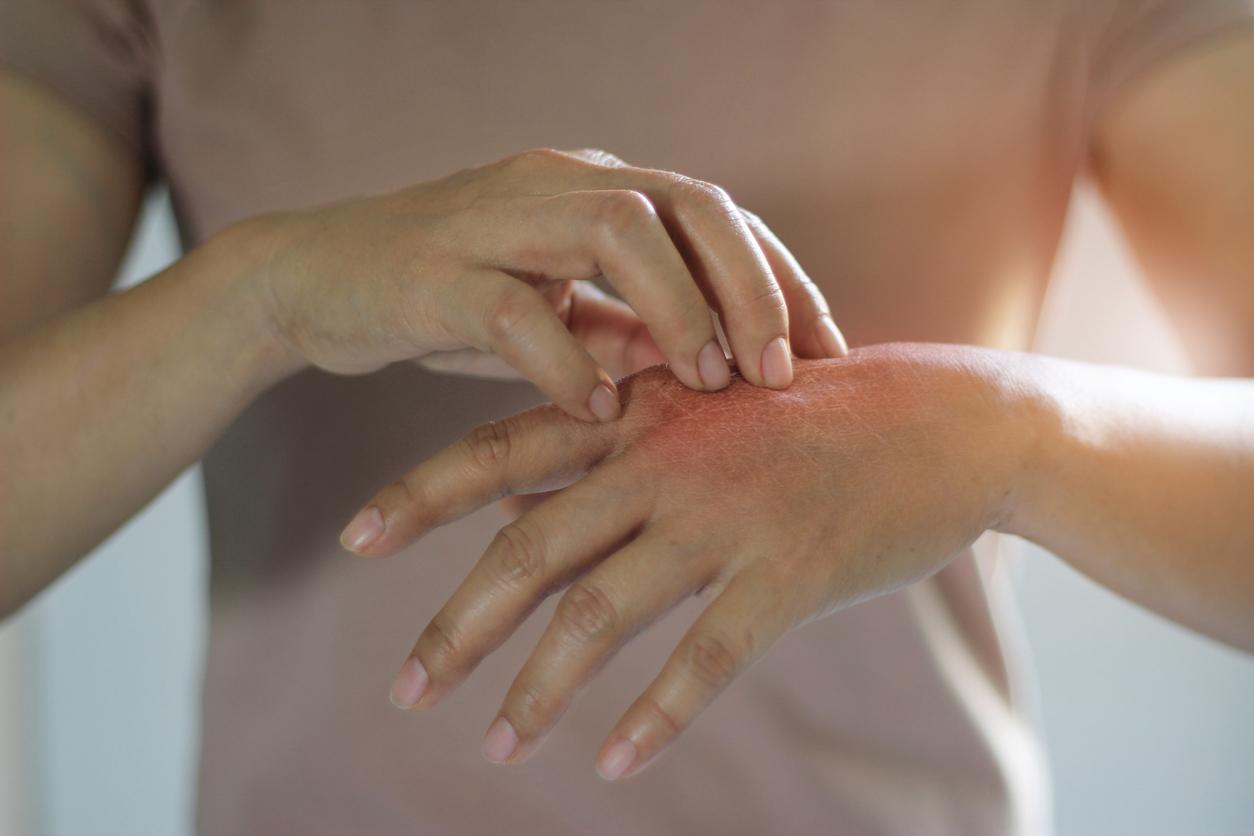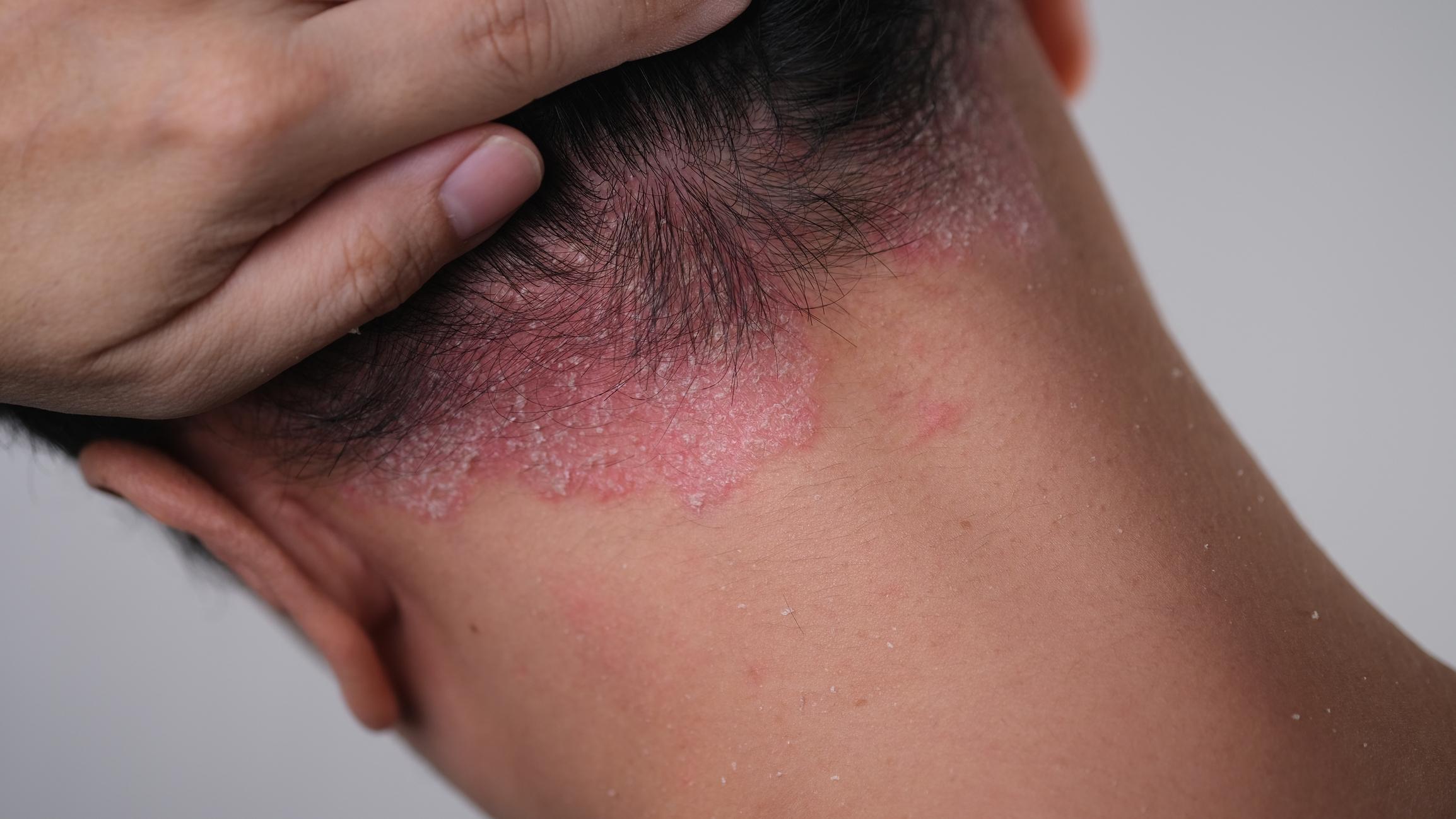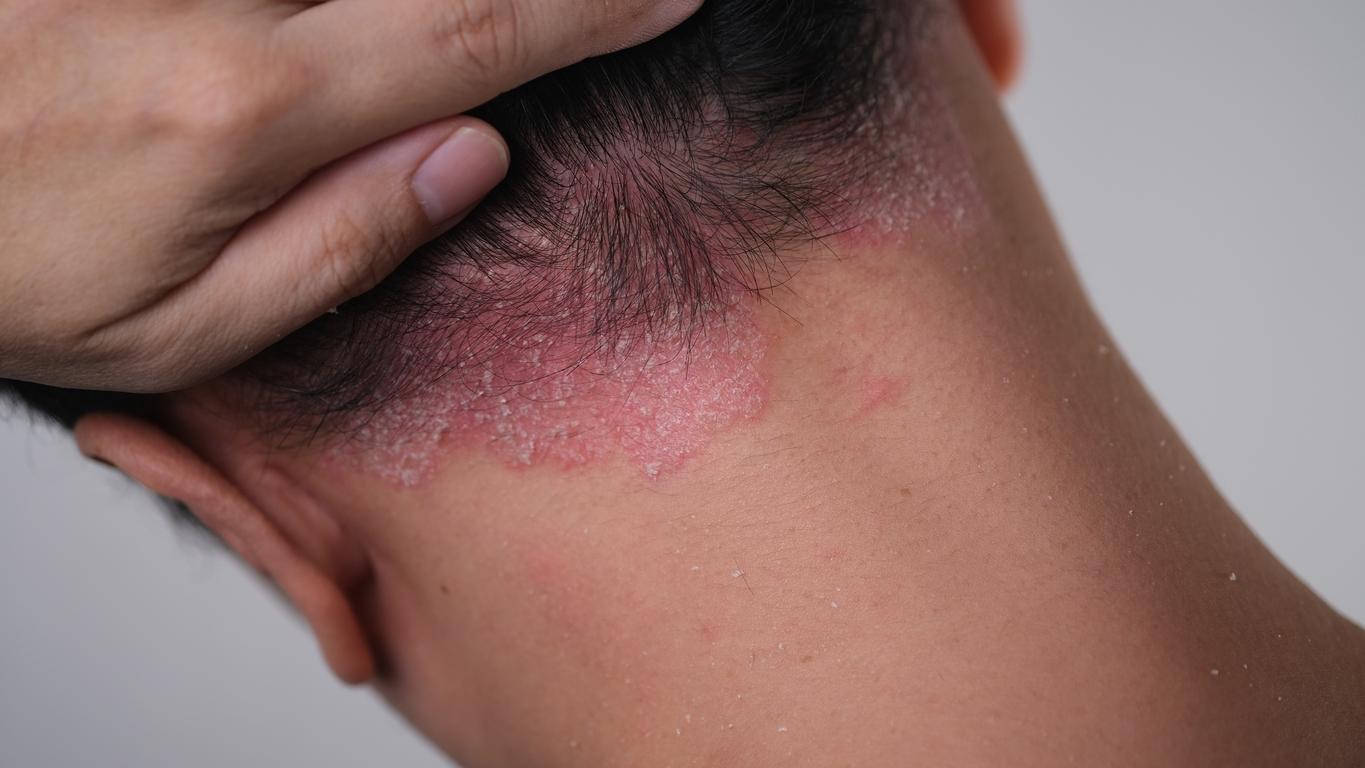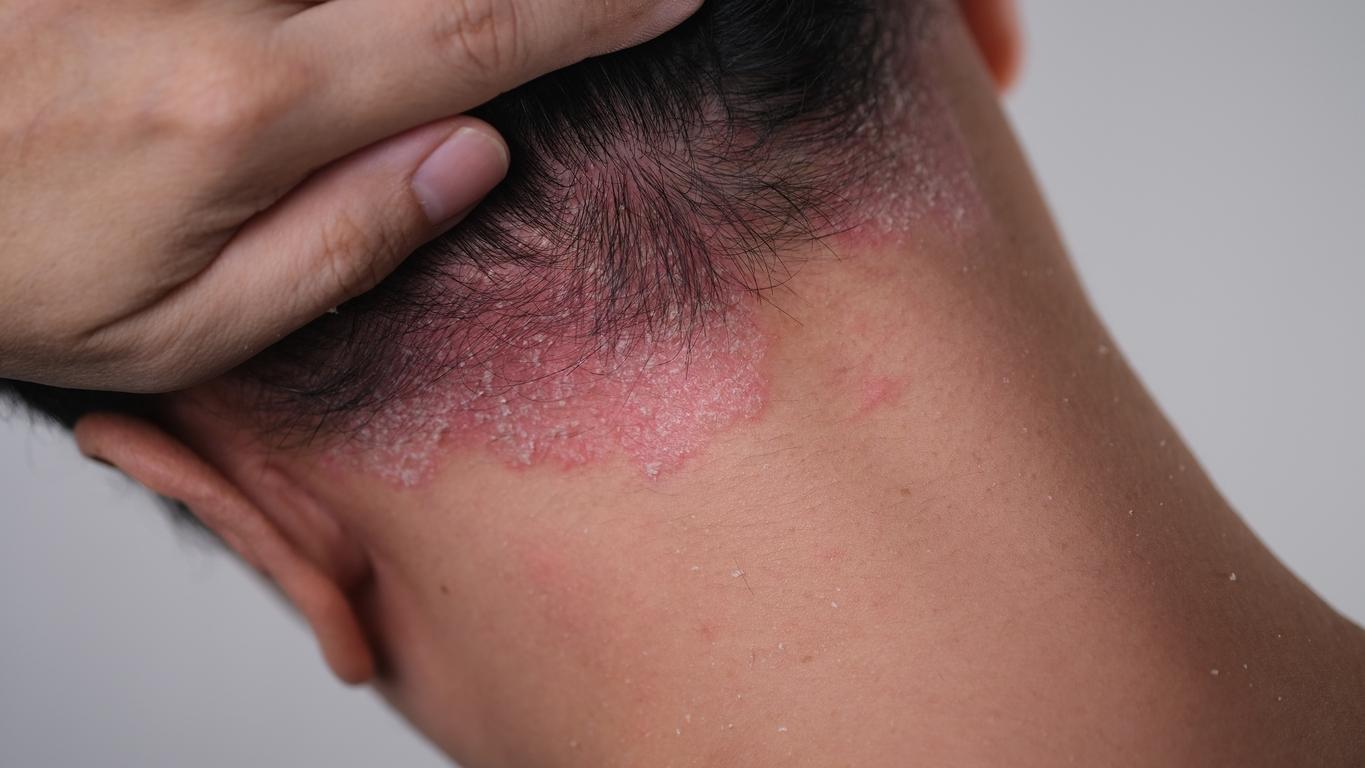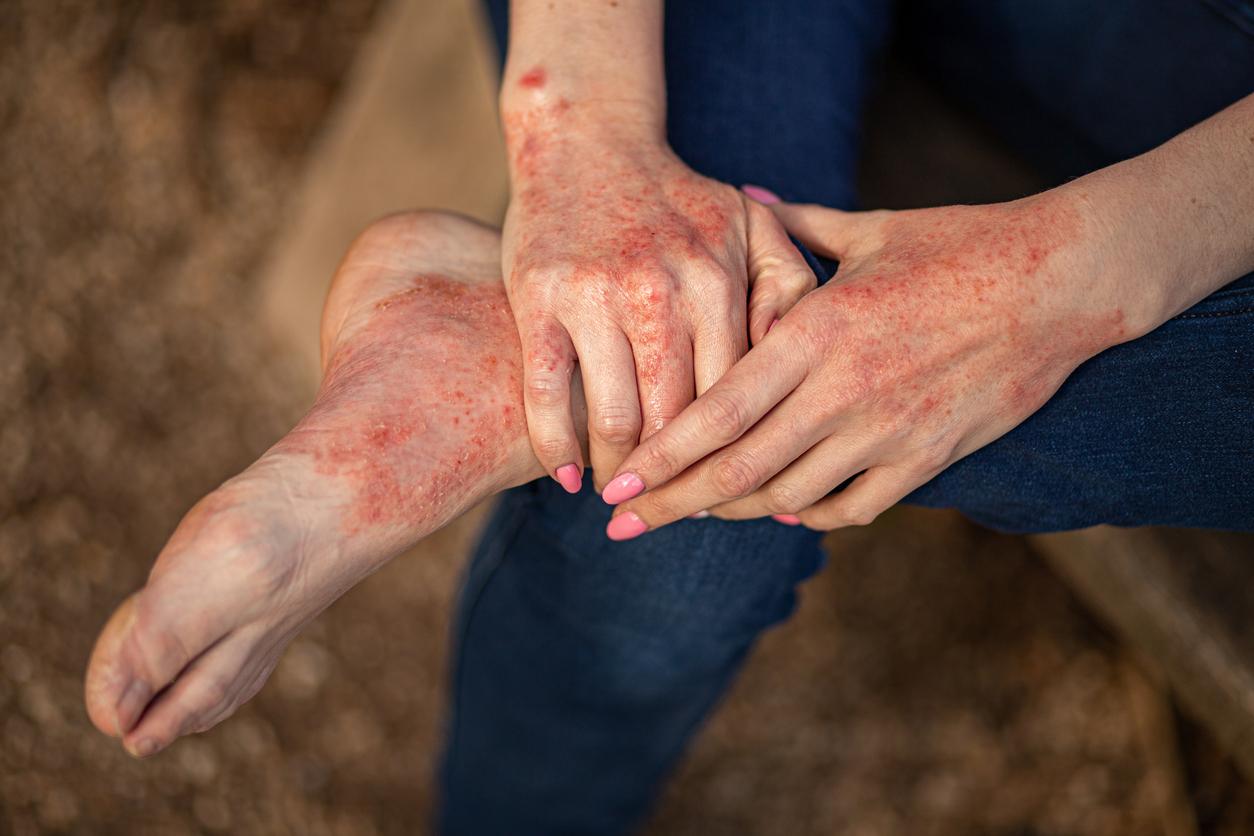Ant venom would be effective in dermatological treatment to treat the psoriasis, according to results of a study published in the medical journal Scientific Reports. Conclusions obtained on mice.
Solenopsins are the main toxic components of ant venom. They chemically resemble ceramides, lipid molecules essential for maintaining the function of the skin’s barrier.
Researchers at Emory University (Atlanta) in the United States developed two compounds analogous to solenopsin and applied them as a cream to mice genetically engineered to have psoriasis.
Ant venom, a new therapeutic dermatological voice
The researchers observed that mice treated with solenopsin analogues displayed a decrease in skin thickness compared to the control group (about 30%). The treated mice also produced 50% less immune cells that infiltrate the skin. When applied to cultured immune cells, the compounds decreased cellular production of the inflammatory IL-22 signal and increased production of anti-inflammatory IL-12, in other words, they reduced the progression. of disease.
“We believe that the solenopsin analogs contribute to the complete restoration of barrier function in the skin,” says Jack Arbiser, professor of dermatology at Emory University School of Medicine.
These findings could lead to new treatments for psoriasis, an autoimmune skin disease. Topical steroids are the most common drugs used for psoriasis mild to moderate, but they have side effects such as thinning of the skin and bruising.
Read also:
Psoriasis: treatments ineffective for 1 in 5 patients
How to reduce the symptoms of psoriasis?
Psoriasis, a skin disease feared by the French











